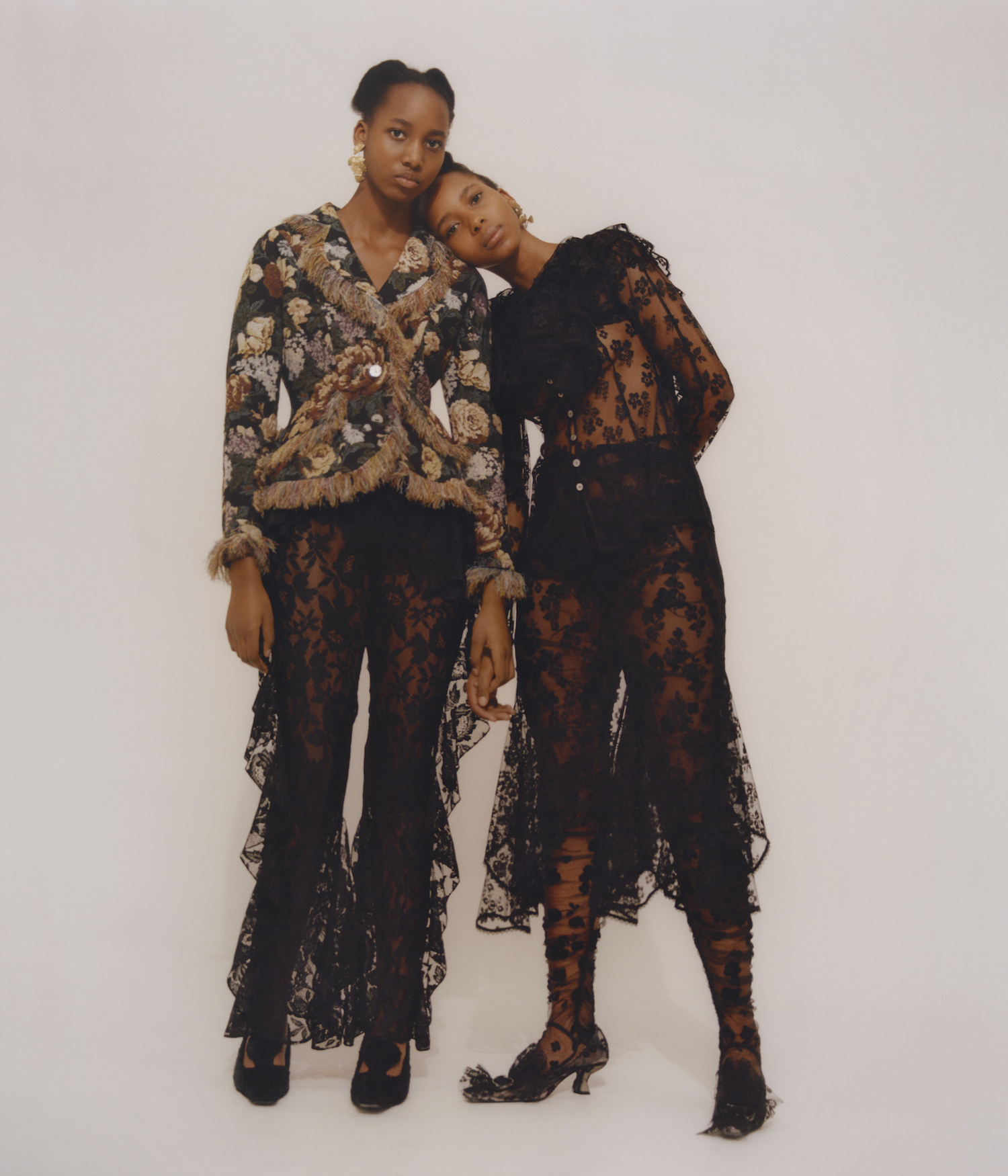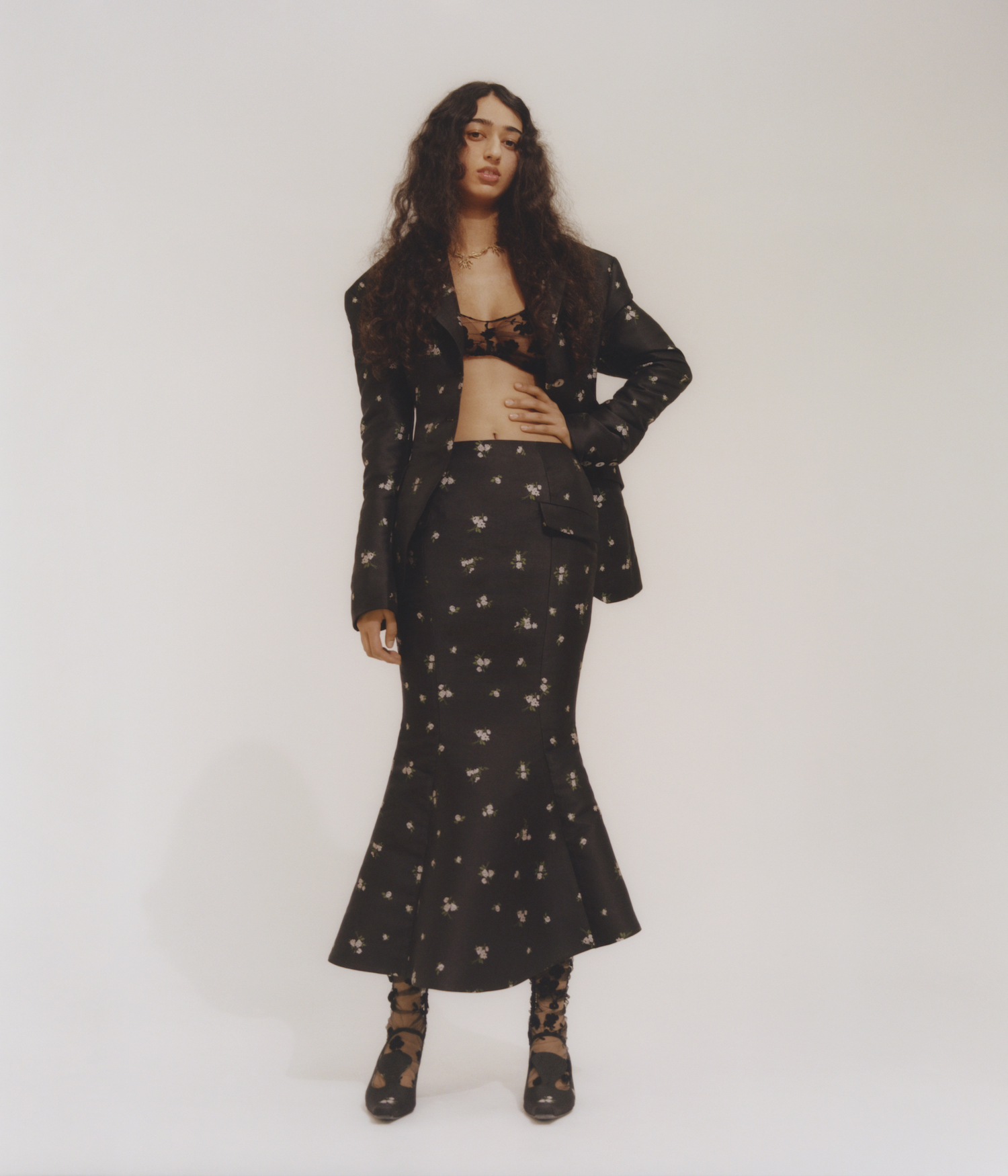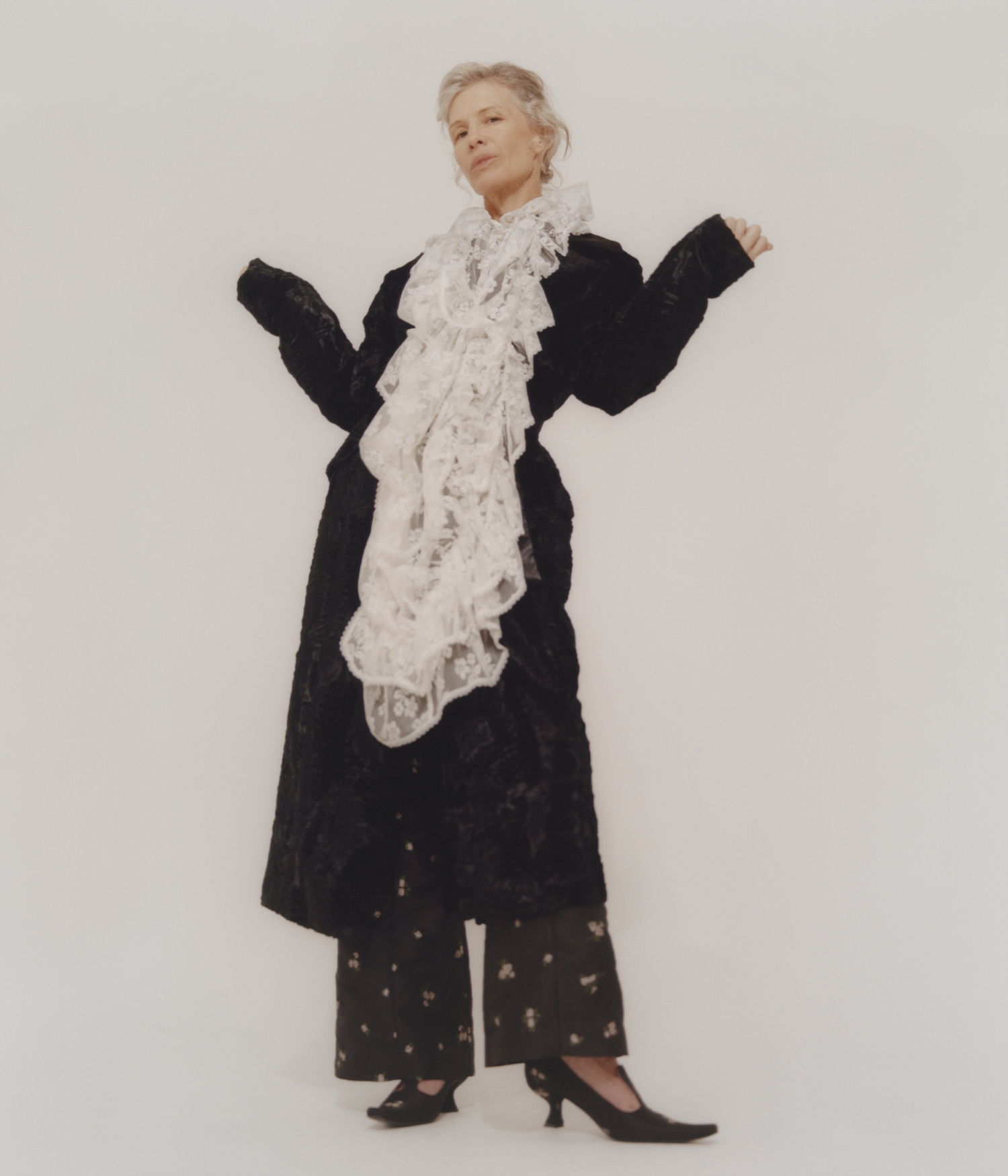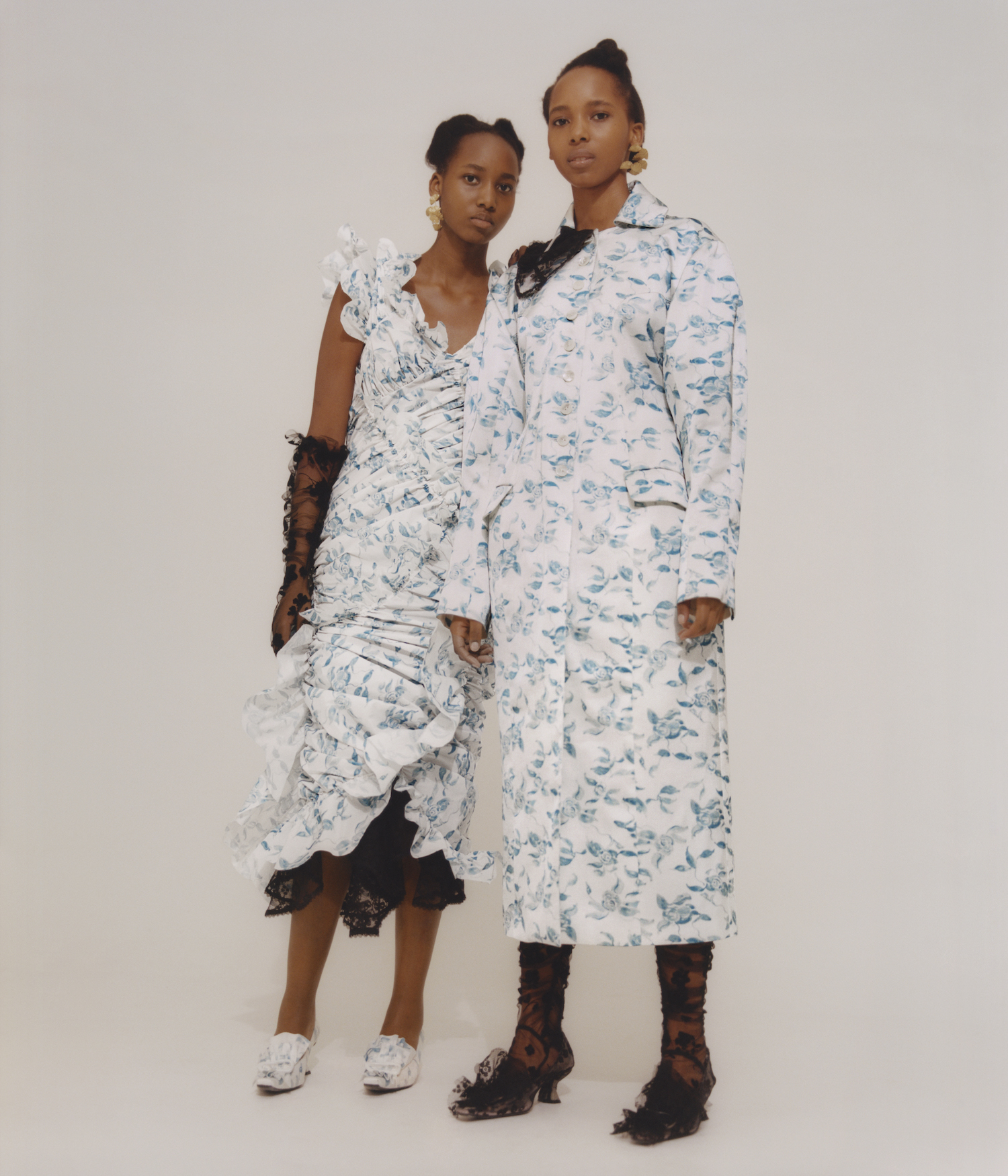If you’ve been afflicted with deeply existential thoughts over the past few months, you’ve got a friend in Yuhan Wang. Recently, the emerging Chinese fashion designer found herself contemplating things like “living, dying and eternal return”; that old philosophical chestnut that proposes that our universe, and all that exists within it, is caught in a recurring loop.
While having such profound thoughts makes sense in the oh-so-strange times we’re living in, Yuhan’s interest in them stretches back a bit further — to the Tang dynasty, and the landscape paintings from the era she studied when she was younger. “They were often means of conveying the inner landscape of an artist’s heart,” Yuhan says. “When they were unable to change the physical world around them, they created their ideal worlds in their paintings.”
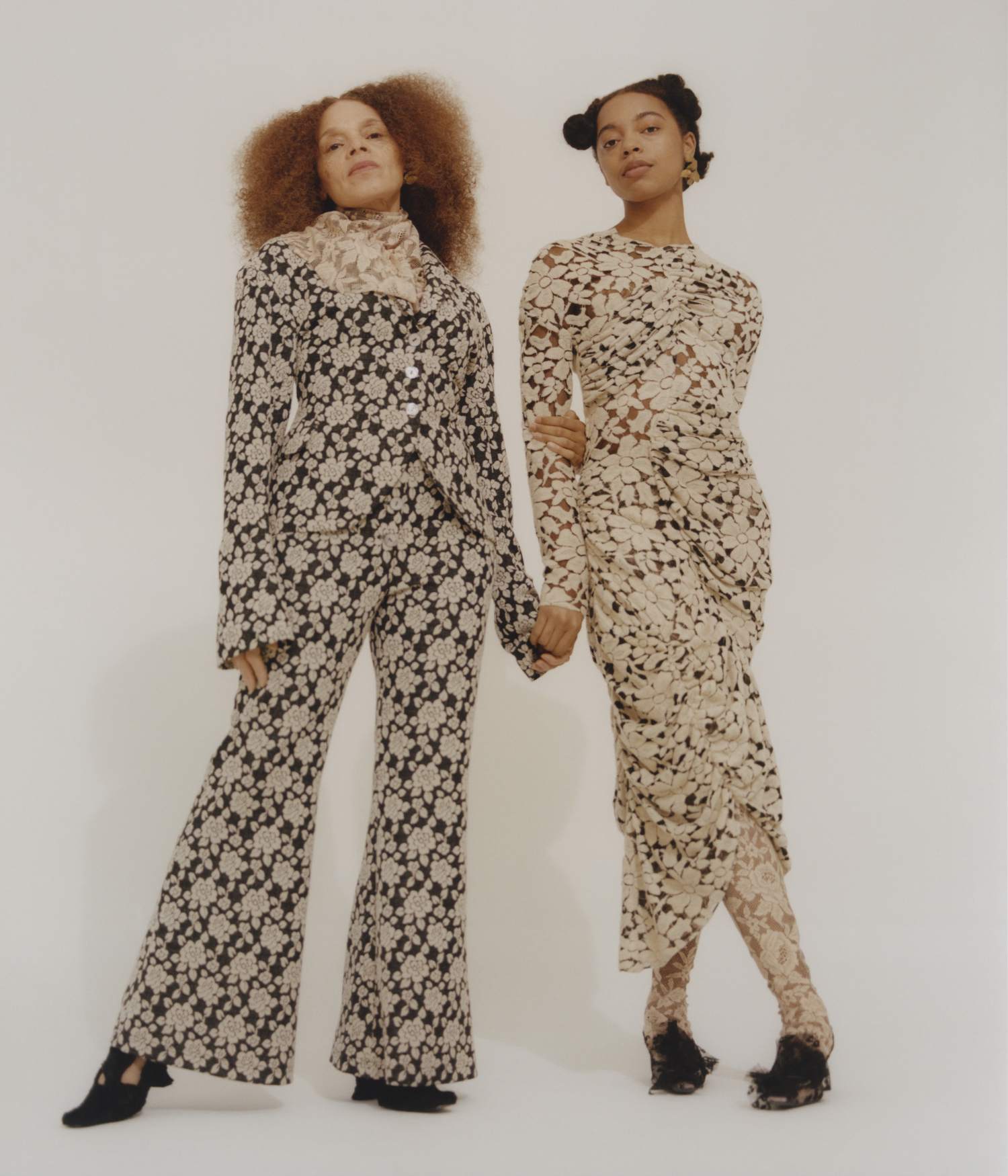
For her AW21 collection, which she presented today on the London Fashion Week schedule, she drew inspiration from the rich symbolism of the pastoral scenes that were often depicted. Bambi-lookalike print leggings — as well as a pair of loafer pumps and a boxy, notch-lapelled coat in mottled faux fur — nod to fallow deer, representing longevity. The pine tree motifs printed on softly draped knit dresses and waisted blanket coats connote “constancy, courage and strength”.
As auspicious as these symbols are in and of themselves, Yuhan’s goal was to reform the contexts in which they first earned their meanings. “For centuries, all of these works were created by male artists; they’re about this idea of a wise man creating his ideal world,” she says. Her mission, then, was less a matter of paying homage to the symbolic regime implicit in Tang dynasty painting, and more one of reconfiguring it, using it to articulate “an inner landscape of women’s lives”.
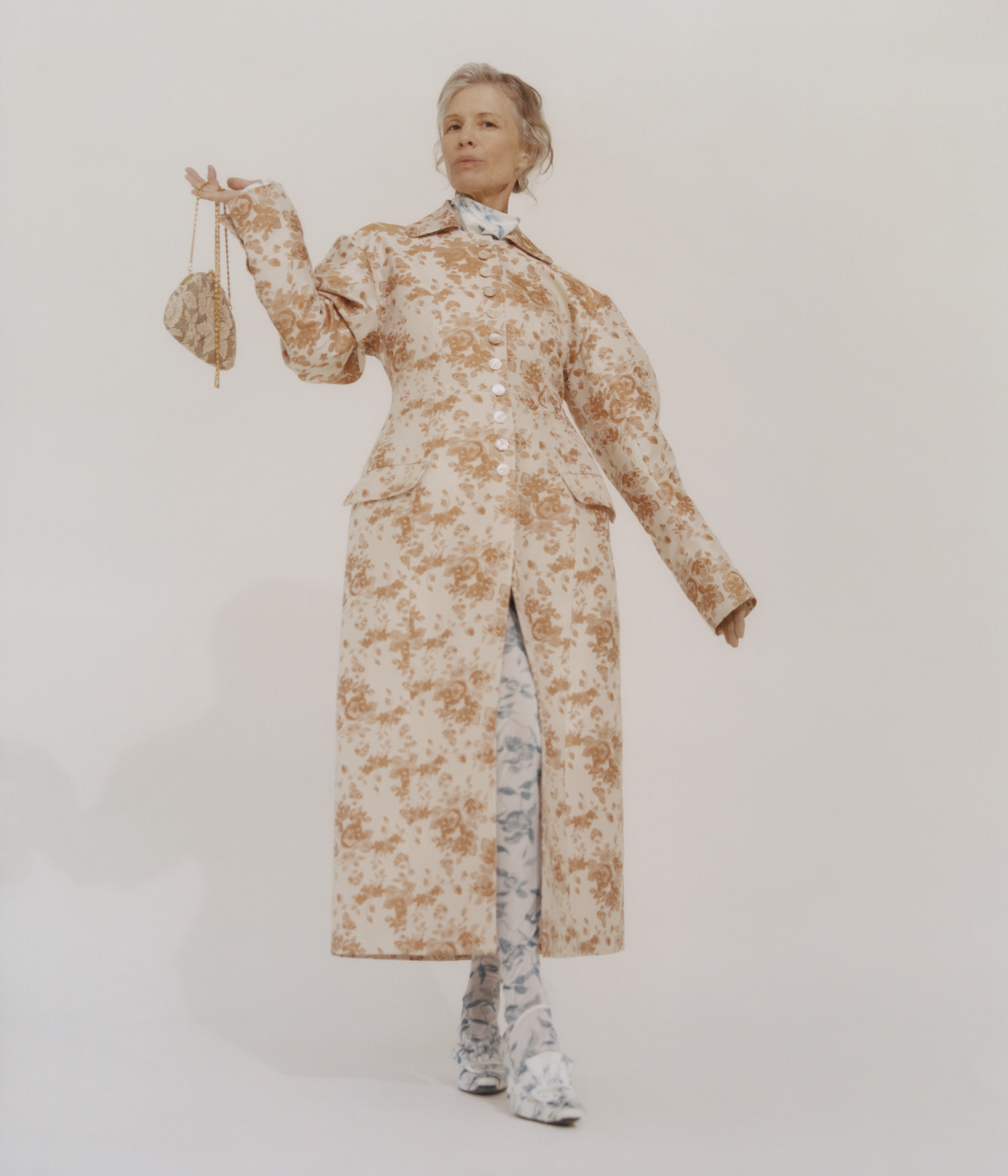
Another key source of inspiration this season was American Impressionist painter Mary Cassat, whose works explored the intimate relationships between a mother and her children. Studying her work sharpened Yuhan’s focus on the “cycle of a mother giving birth to a daughter, who then grows up and has her own”; as well as “how motherhood and sisterhood relate to cycles in nature” and the idea of eternal return.
It’s a theme that makes itself most urgently felt in this season’s cast of IRL mothers and daughters, sisters and friends. It’s noticeable in the clothes, too. Romantically ruched floral lace slip dresses, a pillar of the Yuhan Wang vocabulary, return this season; here, though, they feel a little less steeped in the ethereal fantasy of previous seasons, and more considerate of how they could be worn in the here and now. Flared tailored separates in stretch jacquards have been introduced to accommodate a wider range of body shapes. That’s not to say, though, that this is a conservative body of work. Throughout, there are dashes of youthful, confident sexiness; a diaphanous embroidered bralette, for example, or a crystal-buttoned velvet jacquard skirt that pours across the hips.
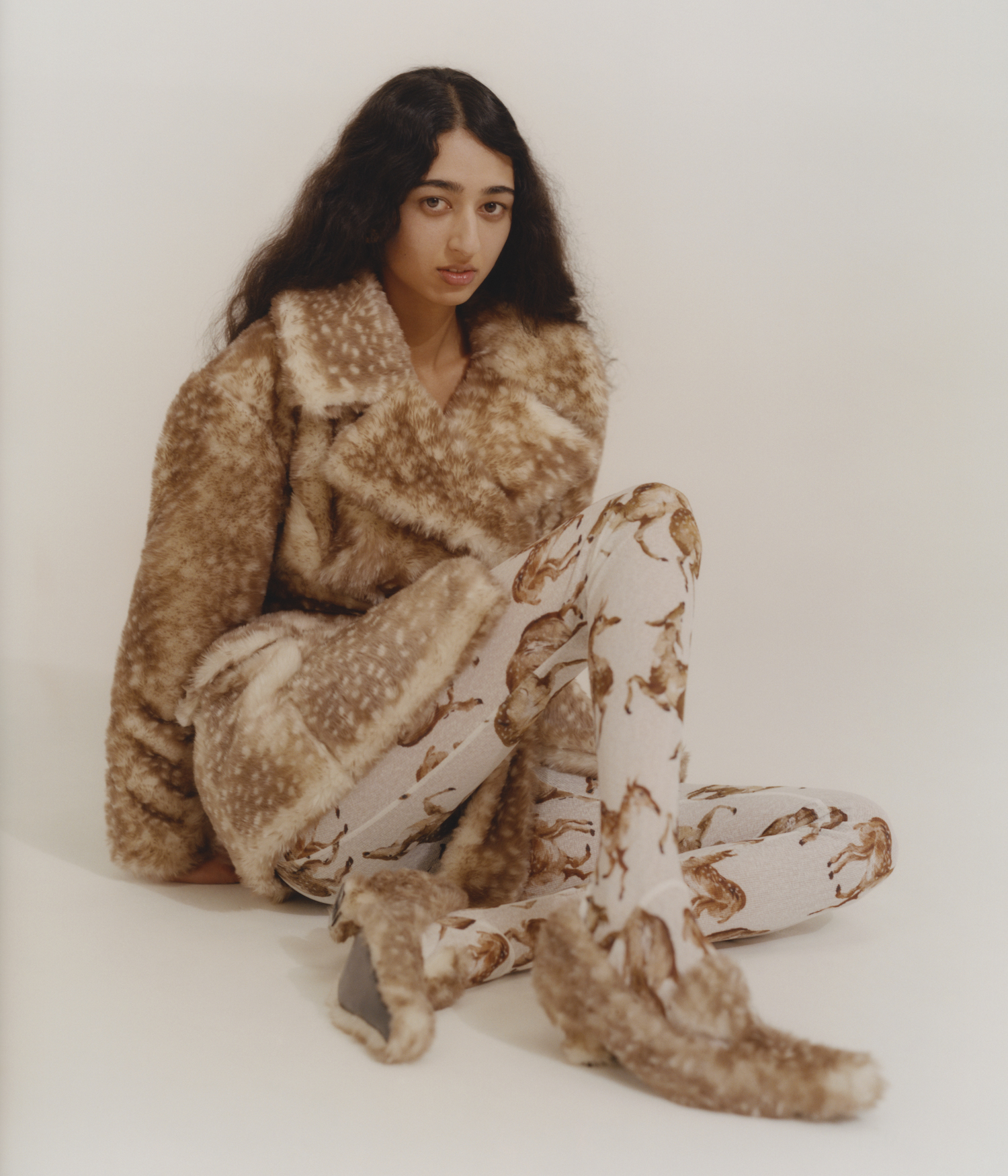
Yuhan has her audience to thank for that. “I never really thought about showing much skin in my work in the beginning, but then, as more and more people started tagging me on Instagram, I saw how some of the women wearing my clothes would style them in really sexy ways. It really opened a window in my mind,” she says. Indeed, with wholesale business processes disrupted due to the pandemic, many independent labels have reported having a more direct relationship with their audience as one of the unexpected benefits they’ve reaped. “People who buy the clothes have started messaging us directly, talking about how they feel when they wear the clothes,” Yuhan says. “I think it made me realise that ‘who my woman is’ is a much bigger, more complex answer than even I expected — there are even some boys who wear my clothes. So I no longer want to define my woman as a certain type. This season was really about opening up a wider world that encompasses different kinds of women; showcasing a woman’s full inner landscape.”
